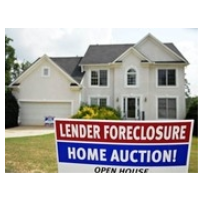Foreclosure Crisis Increased Racial Segregation in U.S.

Some of the effects of the financial crisis that began at the end of the George W. Bush administration are only now coming to light. One such effect is an increase in racial segregation in U.S. neighborhoods.
“Among its many impacts, the foreclosure crisis has partly derailed progress in achieving racial integration in American cities,” said Matthew Hall, Cornell University assistant professor of policy analysis and management in the College of Human Ecology and lead researcher on “Neighborhood Foreclosures, Racial/Ethnic Transitions, and Residential Segregation.”
The study showed that homes in predominately black and Latino neighborhoods were three times as likely to be foreclosed on than those in white neighborhoods, with those in mixed neighborhoods also at a higher risk of foreclosure. The problem was exacerbated when white families fled those neighborhoods and black or Latino families, taking advantage of lower housing prices, moved in. “Not only were white households less likely to be foreclosed on, but they also were among the first to leave neighborhoods where foreclosures were high, particularly those with racially diverse residents,” Hall said.
The study pointed out that “in addition to blacks and Latinos being more likely to experience foreclosure, there is also evidence that the risky loans that fueled the crisis were concentrated in minority neighborhoods, both because of the weaker socioeconomic position of residents and the explicit targeting of minority neighborhoods by subprime lenders.”
The West was particular hard hit by the increase in segregation of black neighborhoods; black-white dissimilarity increased by 8.9 points in the Las Vegas area and 7.5 points in Sacramento. The South experienced an increase in Latino segregation. Atlanta, for instance, had an increase of Hispanic-white dissimilarity of 7.8 points.
-Steve Straehley
To Learn More:
Home Foreclosures Fueled Racial Segregation in U.S. (by Ted Boscia, Cornell Chronicle)
Neighborhood Foreclosures, Racial/Ethnic Transitions, and Residential Segregation (by Matthew Hall, Cornell University; Kyle Crowder, University of Washington; and Amy Spring, University of Washington)
Almost 10 Million Homeowners Owe more than their House is Worth (by Noel Brinkerhoff, AllGov)
The Obama Mortgage Settlement is Just Another Bank Bailout in Disguise (by David Wallechinsky, AllGov)
- Top Stories
- Unusual News
- Where is the Money Going?
- Controversies
- U.S. and the World
- Appointments and Resignations
- Latest News
- Musk and Trump Fire Members of Congress
- Trump Calls for Violent Street Demonstrations Against Himself
- Trump Changes Name of Republican Party
- The 2024 Election By the Numbers
- Bashar al-Assad—The Fall of a Rabid AntiSemite






Comments